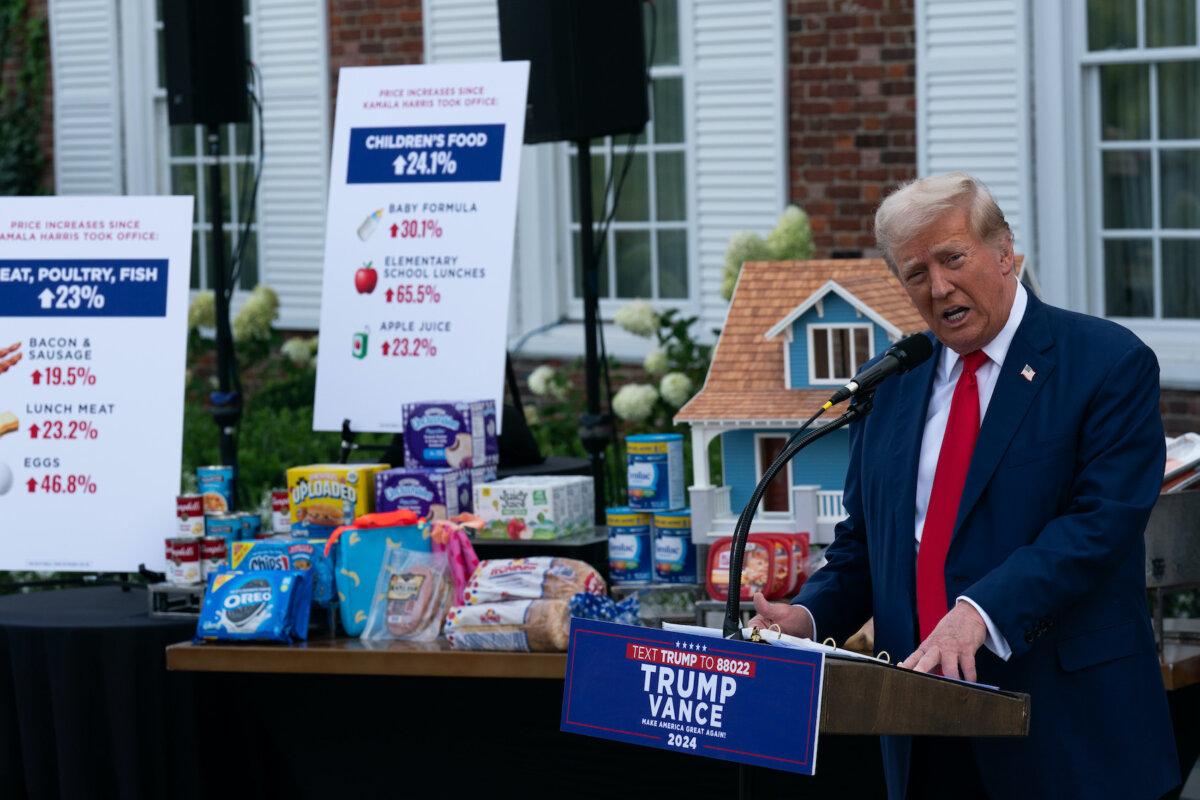With the 2024 presidential election approaching and financial security and inflation at the forefront of voters’ minds, Vice President Kamala Harris and former President Donald Trump are outlining their economic plans for the country. Harris aims to combat price gouging and reduce drug costs, while Trump is focused on boosting energy production.
Harris is gearing up to announce a comprehensive economic proposal on August 16 that includes measures to make consumer prices more affordable and crack down on corporate price gouging in the food and grocery sectors. In response to the rising costs of prescription drugs, the Biden administration recently negotiated lower prices for 10 expensive medications covered by Medicare.
Meanwhile, Trump is emphasizing energy affordability in his campaign, pledging to prioritize oil and natural gas drilling to reduce energy expenses. He also plans to tackle inflation by lowering consumer prices and addressing grocery expenses and energy demands.
As inflation rates slow down and consumer prices remain high, Biden and Harris are working to shift voter sentiment positively. Despite progress in fighting inflation, households are still grappling with escalating costs, borrowing rates, and a sluggish job market. Since Biden took office, prices have surged by over 20%, with gasoline prices rising nearly 50% and food and housing costs increasing by 22% each.
The economy’s slowdown is evident in the labor market, with job additions slowing down and the unemployment rate rising. The manufacturing sector is also showing signs of weakness, with declining business activity and employment levels.
As the election nears, both candidates are focused on addressing the affordability crisis in the U.S. Harris and Biden celebrated their achievements in lowering prescription drug costs, highlighting their agreement with drug companies to reduce prices for essential medications.
In the final stretch of the campaign, voters are looking for solutions to the economic challenges facing the country. Harris and Trump are presenting their contrasting economic visions to address these issues and win over voters.

“We changed the whole way we look at the economy,” Biden told supporters in Maryland.
He suggested that both Trump and congressional Republicans would increase costs for middle-class families while reducing taxes for billionaires and large corporations.
He criticized the concept of trickle-down economics, noting that even some Democratic presidents accepted the idea that when the rich do well, the benefits would eventually reach the rest of the society.
“Well, I didn’t notice a single penny trickle down to my dad’s kitchen table,” he said, praising his own agenda that he said is focused on growing the economy from the middle out and the bottom up.
New drug prices, set to take effect in 2026, are expected to save seniors and other Medicare beneficiaries $1.5 billion in out-of-pocket costs in the first year of the program, according to the White House.
The event in Maryland offered a glimpse into the focus of the Harris campaign over the coming weeks: holding corporations accountable for price increases. Harris highlighted that for years, Big Pharma has inflated the cost of life-saving medications, often charging many times the production cost to boost profits. This message is expected to be a recurring theme in her campaign speeches.
“Two years ago, as vice president, I was proud to cast the tie-breaking vote that gave Medicare the power to negotiate and let it get to the president’s desk,” she told supporters in Maryland, referring to the Inflation Reduction Act, which was signed into law in August 2022.
Harris is expected to call on Congress on Aug. 16 during a speech in North Carolina to pass a federal ban on price gouging as part of her economic plan to lower costs, including grocery bills.
She is also expected to emphasize her commitment to ensuring that all Americans, not just seniors, can pay less for prescription drugs in the years ahead.
Trump’s Vision
The Trump campaign focused on high prices and energy production in two events on Aug. 15—Trump’s press conference at his club in Bedminster, New Jersey, and a rally in New Kensington, Pennsylvania, hosted by his running mate, Sen. JD Vance (R-Ohio).
Standing next to a table with grocery products, including coffee, cereal, bagels, and bacon, Trump said everyday Americans face oppressively high prices on normal expenses.
“Grocery prices have skyrocketed,” Trump said, citing inflated costs for bread, butter, baby formula, eggs, and other groceries.
Trump criticized Harris’s plan to have the federal government restrict price gouging and suggested it would lead to food shortages and long-term price increases instead of reductions.
Beyond inflation, the campaign’s central line of attack on the affordability crisis is energy production. Trump and Vance targeted the topic in both speeches, with the former president arguing he would “immediately bring prices down” by increasing oil and natural gas drilling.
Vance agreed, highlighting the efforts of energy workers in western Pennsylvania.
“Let’s allow these guys to get it out of the ground,” Vance said, referring to oil and natural gas.
Vance said that increased energy production creates “economic opportunity for people” by lowering the cost of manufacturing and making it easier to heat homes during winter, leaving more money in consumers’ pockets for other expenses.
Both Trump and Vance criticized the Biden–Harris administration over energy production and suggested the two have prioritized an agenda that limits drilling and fracking.
The United States hit a 13,300-barrel record for crude oil production last week, up from the previous 13,000-barrel record reached in February 2020 under the Trump administration. The data suggests that oil production has steadily increased after a drop-off during the COVID-19 pandemic.
Trump also criticized Harris for being the tie-breaking vote to pass the American Rescue Plan Act in the U.S. Senate, a $1.9 trillion economic stimulus bill intended to bolster recovery from the pandemic, but has also been linked to inflationary increases.
Could you please rephrase this?
Source link






